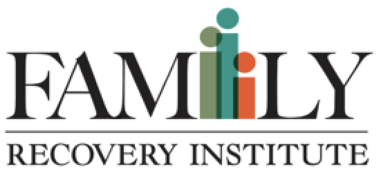NARRATIVE:
Appreciating the implications of personality differences for clinical and supervisory work has been a central concern for psychotherapists since the early part of the twentieth century. Everyone has a personality, whether or not it can be considered pathological. Ever since the 1980 revision of the DSM, personality issues have been relegated to a section of “disorder” categories and described by measurable traits. In this workshop, Dr. McWilliams will offer ten different lenses through which individuality has been viewed (temperament, attachment style, observed clinical pattern, defensive structure, affective organization, implicit cognition, drive tendencies, self-definition versus self-in-relation orientation, core relational theme, and level of severity). She will offer empirical support for each perspective and, using examples, discuss practical clinical implications of each angle of vision, especially that of level of severity, for both psychotherapy and supervision. There will be time for questions and discussion.
LEARNING OBJECTIVES:
Upon completion of this workshop, participants should be able to
- Enumerate ten angles of vision by which personality has been conceptualized by mental health Professionals and scholars
- Differentiate between conceptualizing personality in terms of traits and construing it in terms of intersubjective themes;
- Describe how to apply that knowledge toward more nuanced formulations of the psychologies of their clients and supervisees;
- Describe eight areas in which experts of differing orientations agree about the treatment of borderline psychologies.
- List eight qualities of effective therapists that meta-analyses have identified.
- Explain how they can improve their work with patients based on such formulations, especially in challenging professional circumstances;
COURSE OUTLINE – 4 HOURS:
9:00 – 10:15 am
Dr. McWilliams will discuss 8 different perspectives on individuality, with examples, emphasizing implications for clinical work. She will cover temperament, attachment style, observed clinical pattern, defensive structure, affective style, implicit cognition, motivational systems (drive), and self-definition versus self-in-relationship orientations.
10:15 – 11:00 am
Dr. McWilliams will cover the last two perspectives: inner working models (also called internalized object relations, core conflictual relationship themes, schemas, and other labels) and level of severity. She will apply these concepts to working with patients organized at a healthy/neurotic level and a psychotic level, respectively, emphasizing the difference in the therapist’s approach.
11:00 – 11:15 am
Break
11:15 – 12:00 pm
Dr. McWilliams will review the literature on working with patients in the borderline range of personality organization, including but not limited to patients meeting DSM diagnostic criteria for borderline personality disorder. She will emphasize the areas on which therapists of diverse theoretical orientation are in agreement rather than taking a position in favor of a particular approach.
12:00 – 1:00 pm
Dr. McWilliams will apply these concepts to the supervisory process and engage in a discussion with audience members about how they might apply them clinically.
Content Curriculum:
This workshop will expand the participant’s knowledge about personality and its relevance to outcome in psychotherapy, adding to the participant’s knowledge about how to increase the solidity of the therapeutic alliance based on an appreciation of the patient’s individuality.
The empirical literature on psychotherapy outcome has repeatedly demonstrated that the two factors responsible for the lion’s share of variance are personality factors (in both patient and therapist) and relational factors (the “fit” between them).
The target audience is everyone who is working clinically in the mental health field. The concepts will be explained simply enough so that they will be accessible to participants who are beginners in the field, as well as those with advanced knowledge.
The content is based on published empirical and clinical studies that have been peer-reviewed. None of the content involves risks.
There will be a special section in the lecture about appreciating individual differences based on age, gender, sexual orientation, ethnicity, class, ability, religious orientation, and other factors. The cases selected for discussion will reflect diverse populations.
BIO:
Nancy McWilliams is Visiting Professor Emerita at Rutgers Graduate School of Applied & Professional Psychology and has a private practice in Lambertville, NJ. She is author of four textbooks (on psychoanalytic diagnosis, case formulation, therapy, and supervision) and is co-editor of both editions of the Psychodynamic Diagnostic Manual. A former president of the Society for Psychoanalysis and Psychoanalytic Psychotherapy of the American Psychological Association, she is a member of the Austen Riggs Center Board of Trustees. Her books are available in 20 languages and she has taught in 30 countries.
COST:
CIP Members:
$80 early registration 10 business days prior to seminar; $100 after
Non-Members:
$100 early registration up to 10 business days prior to seminar, $120 after
CEs:
4 CEs for LMFTs & LCSWs and 4 CEs for Psychologists. Participants must attend the full live session and complete the evaluation at the end to receive a CE completion certificate.
The Community Institute for Psychotherapy is approved by the American Psychological Association to sponsor continuing education for psychologists. The Community Institute for Psychotherapy maintains responsibility for these programs and their contents.
Accommodations will be made wherever possible for those with disabilities. Please let us know of any disabilities upon registration to ensure proper accommodations are put in place prior to the workshop/training.
Cancellations must be received in writing 10 business days prior to the seminar, class, or first study group session for a refund minus a $25 cancellation fee. Cancellations less than ten days will not be refunded.
Grievance Procedure: CIP will respond to complaints in a reasonable, ethical and timely manner, when submitted by program attendees in writing to the Chair of CIP’s Professional Development Committee.
Anti-Discrimination Policy: CIP shall not discriminate against any individual or group with respect to any service, program or activity based on gender, race, creed, national origin, sexual orientation, religion, age or other prohibited basis. CIP does not require attendees to adhere to any particular religion or creed in order to participate in training. CIP will not promote or advocate for a single modality of treatment that is discriminatory or likely to harm clients based on current accepted standards or practice.
*There is no conflict of interest or commercial support related to this CE program.













